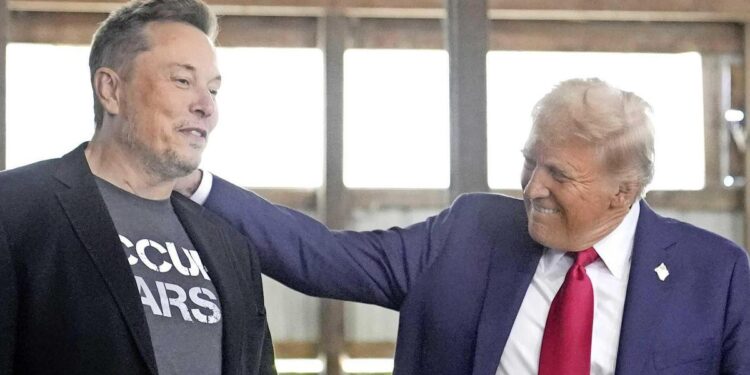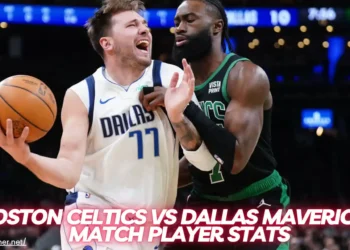Elon Musk’s Next Action: What Triggered Industry Speculation?
When it comes to unpredictability, Elon Musk has practically trademarked the concept. Known for shaking up industries from automobiles to aerospace and even social media, his latest series of cryptic posts and public moves have triggered a wave of speculation within Hollywood’s inner circle. What exactly is Elon Musk’s Next Action? And more importantly, why are entertainment industry insiders so nervous?
It all began with a sequence of subtle tweets and interviews, where Musk hinted at merging entertainment, AI, and technology in ways never seen before. One such post read: “The next film won’t be written or acted—it’ll be computed.” While many dismissed this as a typical Musk-ism, insiders began connecting dots. A few months ago, Musk quietly registered multiple new domains through X Corp, which include keywords like “media,” “cinema AI,” and “streaming autonomy.” These weren’t just vanity URLs—they appear to be tied to a new tech-media venture that aims to blur the lines between storytelling and software.
Further intensifying the speculation, Musk recently had closed-door meetings with several high-profile directors, including ones closely affiliated with big-name streaming platforms. Studio executives are now paying attention not because Musk talks a big game—but because he consistently delivers on disruption. Just as he changed the way we think about electric cars and rockets, he may be gearing up to redefine how content is created, funded, and delivered.
Hollywood’s Business Model Faces a Disruptor
Hollywood’s traditional ecosystem is built on tested formulas—celebrity power, box office metrics, carefully timed streaming releases, and hefty marketing budgets. But Elon Musk’s next action threatens to dismantle that structure by introducing a radically different, tech-forward model. For decades, studios have banked on human creativity, but Musk seems poised to inject algorithms and AI into the very heart of content creation.
Insiders are concerned about a concept Musk alluded to recently: algorithmically written films. If he succeeds in producing full-length, emotionally resonant stories written by AI and digitally performed by lifelike avatars, it could massively reduce the cost and labor involved in filmmaking. That alone is enough to send waves through agencies, unions, and even post-production houses. Hollywood’s model depends on people—writers, actors, cinematographers—and Musk’s disruptive idea could sideline many of them. Learn more
Additionally, if Musk chooses to distribute his AI-crafted films via X (formerly Twitter) or his own private streaming platform, he cuts out the middlemen: no need for studios, agents, or conventional streaming deals. This direct-to-consumer model is something traditional players fear because it bypasses their control over the content pipeline. With just one tweet, Musk could reach hundreds of millions of users globally, without spending a dime on trailers or press junkets.
As film studios double down on reboots and safe franchises, Musk’s experimental tech may actually win the hearts of the younger generation who are eager for new forms of storytelling. For Hollywood, this isn’t just a creative disruption—it’s a complete re-engineering of business logic.
Celebrities Are Divided—Support or Resistance?
As expected, not all celebrities are reacting the same way to Elon Musk’s emerging influence in entertainment. Some see it as an opportunity, while others fear it may make their roles obsolete. A-listers who’ve partnered with tech-driven projects, such as digital art or AI voices, are more open to collaborating with Musk. According to a leaked email shared by a talent agent (name withheld), a major actor described Musk’s new direction as “the cinema of the future.”
However, not everyone is on board. Many actors and screenwriters are still recovering from the recent strikes over AI usage in the industry. For them, the idea of “computed performances” feels like a threat to human expression. Musk’s idea of bypassing unions and collaborating with machines has already drawn backlash from guild leaders, who argue that it risks eroding the essence of the film craft.
What adds fuel to the fire is Musk’s history of avoiding conventional contracts and regulatory systems. If he introduces a parallel entertainment pipeline free of unionized labor, it may escalate existing tensions. The divide is real: some celebrities are reportedly in talks to lend their digital likenesses to Musk’s project, while others are speaking out publicly against any collaboration. This ideological split could become a defining rift in the next decade of entertainment.
Elon’s Obsession with Immersive Tech: Will Theaters Survive?
One of the most unsettling rumors floating around Tinseltown is that Elon Musk’s next move involves creating hyper-immersive cinema experiences—possibly involving Neuralink or Tesla’s virtual environments. Unlike IMAX or 3D, Musk envisions an interaction between the viewer’s mind and the content. Where your emotions or thoughts might shape parts of the story in real time.
This kind of technological leap could render traditional movie theaters obsolete. Why sit passively in a chair for two hours when you could live the narrative in your own mental playground? Theaters already struggle post-COVID, and with streaming gaining dominance, Musk’s format could finish the job. Industry analysts suggest that by 2030. These experiences could even migrate into home-viewing pods or Tesla vehicles, transforming how we engage with visual content during everyday tasks like commuting.
For theaters to survive this wave, they’ll need to rapidly evolve. Partnerships with tech firms, real-time immersive setups, and interactive projection systems may become necessary. Otherwise, Hollywood may find itself dominated not by box office weekend tallies, but by neuro-data metrics and real-time viewer feedback—a realm Musk is already well-versed in.
Will Streaming Giants Like Netflix or Disney+ Be Replaced?
It’s not far-fetched to think that Elon Musk’s next action could target giants like Netflix, Disney+, or Amazon Prime. With his ownership of X and growing control over other communication platforms like Starlink, Musk has both the infrastructure and audience to launch a new kind of streaming platform—one that combines real-time interaction, blockchain payment models, and perhaps even AI-curated viewing queues tailored to users’ moods and biometrics.
Such a platform could dramatically undermine the licensing-heavy, profit-sharing models that current streaming giants rely on. If Musk offers content that’s decentralized, affordable, and deeply personalized, subscription fatigue might push viewers to abandon conventional platforms. This disruption could spell disaster for rigid, legacy-driven streamers that are slow to evolve.
Tech experts also speculate that Musk might gamify content discovery, turning passive viewers into active participants. Instead of binge-watching, users might ‘earn’ content, trade digital experiences, or unlock storylines through engagement, similar to a Netflix-meets-Gaming hybrid. In such a model, streaming as we know it could be overrun by a far more addictive and immersive system—with Musk as the gatekeeper.
How Film Schools and Young Creatives are Reacting
While Hollywood studios brace for impact, film schools and young creatives are watching Elon Musk’s entertainment disruption with equal parts excitement and anxiety. On one hand, students learning traditional scriptwriting and cinematography now question the relevance of their training. If AI writes stories and digital doubles replace actors, what will their future roles look like? Some professors have even adjusted their curricula to include AI prompt engineering and machine-assisted storytelling as new essentials.
However, not all change is viewed negatively. Many aspiring creatives see Musk’s approach as democratizing filmmaking. Tools once reserved for million-dollar studios could become widely accessible. Imagine an 18-year-old in rural Texas using open-source AI. And digital avatars to create a sci-fi epic that trends worldwide—all thanks to the infrastructure Musk develops. Barriers to entry could drop significantly, allowing global talents to flourish outside of Hollywood’s gatekeeping.
Why the Public May Actually Love Musk’s Entertainment Revolution
While Hollywood execs and unions may be panicking, the general audience might feel the opposite. If there’s one thing Elon Musk excels at, it’s capturing public curiosity. With Gen Z and younger Millennials showing more interest in short-form, tech-integrated storytelling, Musk’s format could feel refreshing, even revolutionary.
Fans are already speculating online about what a Musk-produced film might look like. Would it involve SpaceX footage? Real-time audience interaction? A fully AI-generated script based on user polls? These aren’t far-fetched ideas—they’re extensions of tech already in development. On Reddit and X, users are sharing excitement, with posts titled “I’d totally watch a movie directed by Elon’s bot” gaining traction.
Moreover, the appeal of bypassing Hollywood’s sometimes gated, repetitive output is high. Many viewers have grown tired of sequels and formulaic superhero films. Musk’s disruption, if nothing else, promises something entirely different—which is exactly what a saturated audience is craving.
A key element of this enthusiasm also stems from Musk’s unpredictability. People love the idea of a maverick billionaire trying something insane—especially if it works. If he drops a film with no trailer, no cast interviews, and no premiere, just a link and a tweet—people will click, share, and possibly fall in love with it for its rebellious freshness.
Fazit: Musk’s Disruption May Reshape Hollywood Forever
In conclusion, Elon Musk’s next action isn’t just sparking nervous laughter in studio meetings—it’s igniting real anxiety. Whether it’s AI-generated films, celebrity avatars, or new streaming platforms, Musk is taking aim at the core of what Hollywood considers sacred. His reputation for turning wild ideas into reality is what sets this apart from other tech experiments.
We are witnessing a paradigm shift where the boundaries between technology and entertainment are melting away. If Musk succeeds, the creative gatekeepers may no longer be powerful studios but rather algorithms and audience data. Love him or hate him, Elon Musk is turning entertainment into his next launchpad, and it’s set to shake the industry in ways we can barely anticipate.
FAQs
1. Why are Hollywood insiders nervous about Elon Musk’s next action?
They fear his plans involving AI and direct-to-consumer platforms could disrupt traditional studio control and union labor models.
2. Is Elon Musk actually making movies?
While he hasn’t released a film yet, Musk has hinted at tech-integrated storytelling and has reportedly met with directors to explore such ideas.
3. How would Musk’s movie model differ from Hollywood?
It may involve AI-generated scripts, digital actors, and streaming through platforms like X, cutting out traditional production and marketing.
4. Could this impact real actors and writers?
Yes, many believe this could reduce human roles in entertainment and are concerned about losing creative and financial opportunities to AI.

















